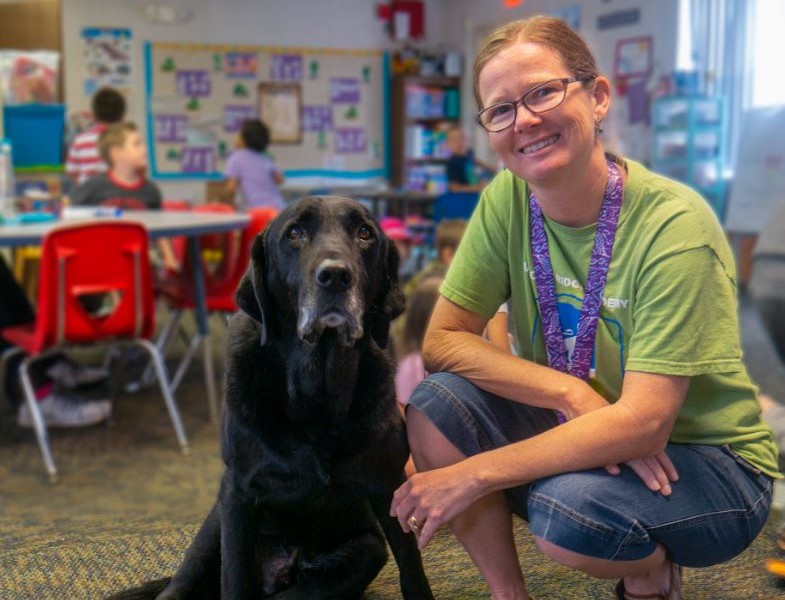
Health News
Features
-
Lending a Helping Paw
Service Dogs Offer More Than You Might Think by MATT NORMAN When you think service dogs, what comes to mind? You probably think of a beautiful lab in a vest and helping the visually impaired. While many service dogs are used for guiding those who are blind, there are a lot more ways service…
-
Caring Canine
Meet Victory Ridge Academy’s Superstar, Dub the Service Dog by TERESA SCHIFFER If there’s one face familiar to all at Victory Ridge Academy, it’s Dub, the dog. Dub, short for Dublin, has been working at the school for children with special needs for the last 10 years. Dub is a Labrador retriever who has been…
-
Riding for Therapy
Equine-Assisted Activities Offer Heartfelt Help for Vets, Children with Special Needs by Mary Toothman At TiAnViCa Riding Academy, more than a dozen horses are on hand to allow people to ride — and heal. Sara Meadows, executive director and co-founder of TiAnViCa Riding Academy, says horseback riding for people with special needs has been offered…
Columns
-
Kybella Injections Target Fat in Chin, Neck
If you’re self-conscious about the appearance of your chin and neck area, Kybella might be for you. Kybella is the commercial name for deoxycholic acid, a product that kills fat cells. This acid actually already exists in our bodies, just in the digestive system. It breaks down fats so they’re more easily digested. It can…
-
What is Bell’s Palsy?
By: Edward Attaway, O.D. Bell’s Palsy is a condition in which one side of the face typically experiences temporary paralysis, often lasting from 3-6 months. It results from a dysfunction of the 7th cranial nerve, also referred to as the facial nerve, which controls the muscles on the side of your face. Affected muscles include…
-
When Do You Visit the Doctor for Hives?
Hives are itchy patches of skin that turn into swollen, itchy welts. They can vary in size. Chronic hives are defined as hives that last for more than six weeks and return over the course of months or years. The cause of chronic hives is often unknown. These welts are caused by some reaction that…




